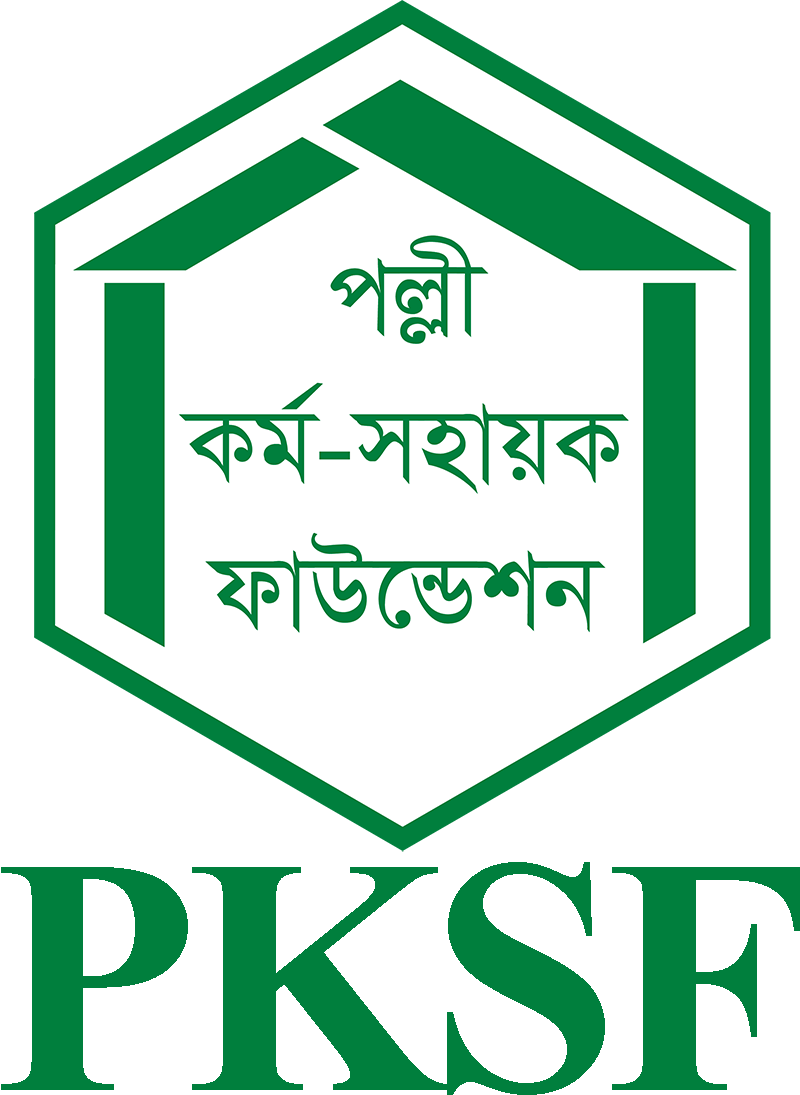PKSF Training Unit
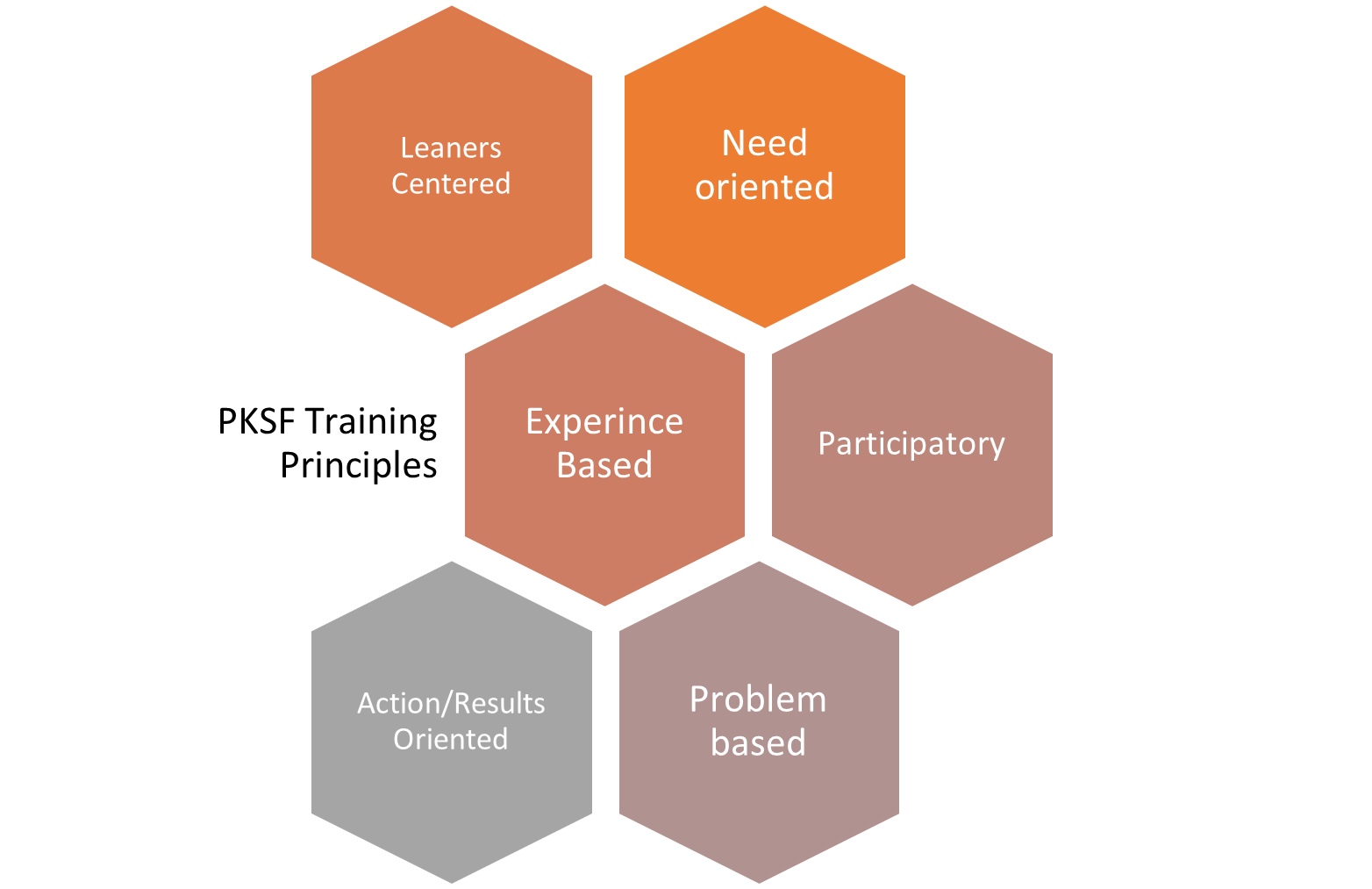 The Training Unit of PKSF aims to develop the capacity of officials of its Partner Organizations (POs). It arranges highly customized training courses with specially designed training modules covering a wide range of areas in management of financial services, sustainable development, and poverty alleviation. In 1997, PKSF started a training program to increase the capacity of the human resources of its POs and established a separate training unit. This Unit offers training to the POs’ officials as well as assists in arranging internship programs for university students. It also arranges exposure visits for both domestic and foreign delegates of different organizations.
The Training Unit of PKSF aims to develop the capacity of officials of its Partner Organizations (POs). It arranges highly customized training courses with specially designed training modules covering a wide range of areas in management of financial services, sustainable development, and poverty alleviation. In 1997, PKSF started a training program to increase the capacity of the human resources of its POs and established a separate training unit. This Unit offers training to the POs’ officials as well as assists in arranging internship programs for university students. It also arranges exposure visits for both domestic and foreign delegates of different organizations.
One of the important tasks of PKSF’s Training Unit is to prepare trainee-friendly manuals divided into different training modules for each of the training courses offered. These manuals help trainers conduct training courses effectively for people who are implementing different interventions at the PO level. The Training Unit also organizes training for organizations from both home and abroad who are keen to understand the development efforts taken by PKSF.
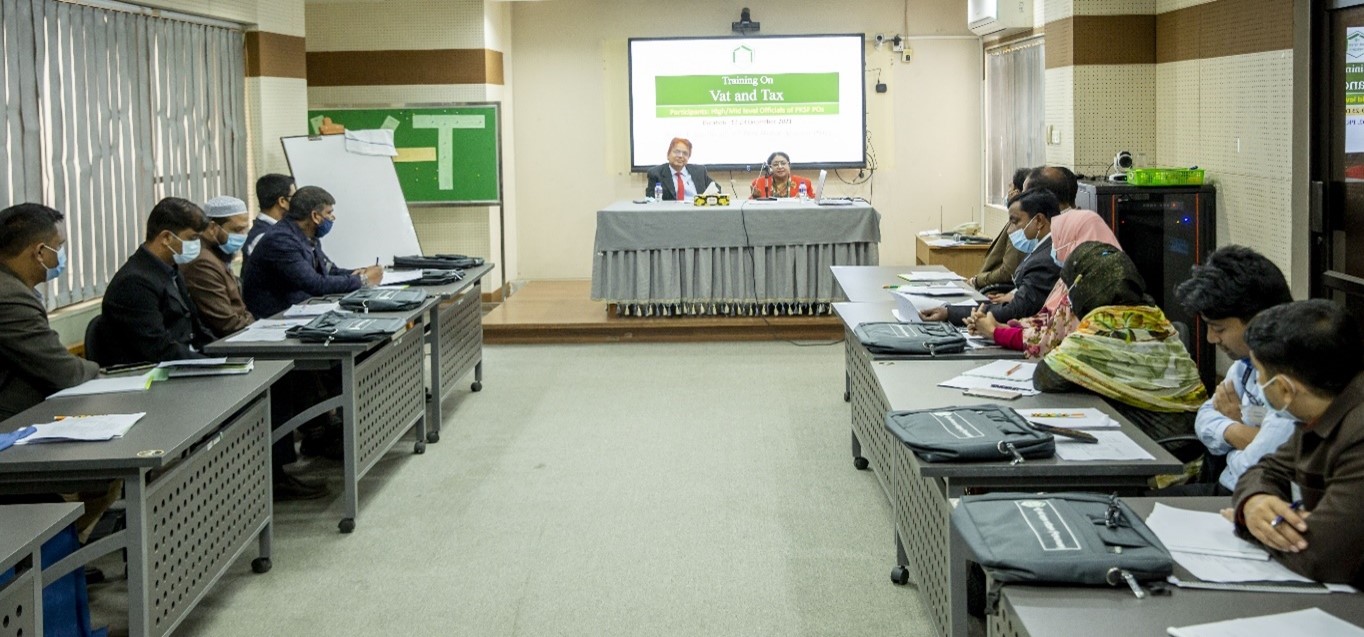
PKSF Training Values
The Training Unit conducts all its activities based on specific values and ensures that the values are adopted at all levels. The core values of the Unit are:- Diversity and inclusion
- Gender Equality
- Inclusive Development
- Innovation
- Commitment
- People at the Center
- Team Work
- Result-driven Initiatives
- Networking
- Change Management
Overall Objectives
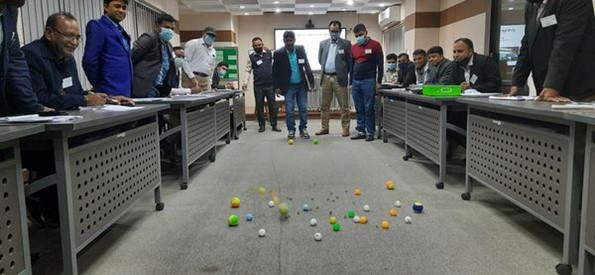 The overall goal of the PKSF Training Unit is to improve the professional capacity of officials of the POs. The Specific Objectives of the Unit are:
The overall goal of the PKSF Training Unit is to improve the professional capacity of officials of the POs. The Specific Objectives of the Unit are:
- To develop and provide training courses for the officials of PKSF’s POs to enhance their practical skills which are required at the field level;
- To improve the capacities of officials from government offices and national and international organizations by providing customized training, orientations, and workshops; and
- To extend appropriate support and facilities to non-partner organizations (non-POs) to organize training, exposure visits, workshops, and seminars as and when necessary.
General Objectives
The General Objectives of the Training Unit are as follows: Knowledge and Understanding: Training participants will have general knowledge and understanding of principles and theories, as well as specialized knowledge and understanding of the training subjects. More specifically, they will be able to demonstrate general knowledge and understanding and exhibit a broad understanding of key issues and processes in the particular subject, including an awareness of the scientific foundations of the field and familiarity with methodologies commonly used in the field. Skills and Abilities to Drive for the Results: Training participants will have the skills and abilities required to engage in the implementation of different development interventions. More specifically, they will be able to demonstrate the ability to identify, search for, collect, evaluate, and critically interpret information that is necessary to discuss and propose effective solutions to formulated problems that relate to the development interventions and demonstrate the ability to identify, formulate, and solve problems both autonomously and in cooperation with others, within predetermined time frames. Assessment and Approach: Participants will be able to demonstrate the ability to make educated assessments of difficulties. In addition, the essential attitude and behavioral emphases will come through the effective change management and life-long learning. They will be able to demonstrate an ability to make assessments of issues relating to development interventions that are informed by relevant disciplinary, social, and ethical insight; exhibit insight into the role of knowledge in society and their own responsibility for the way knowledge is managed and used; and identify their need for additional knowledge and ongoing learning.Double Skills and Double Loop Learning
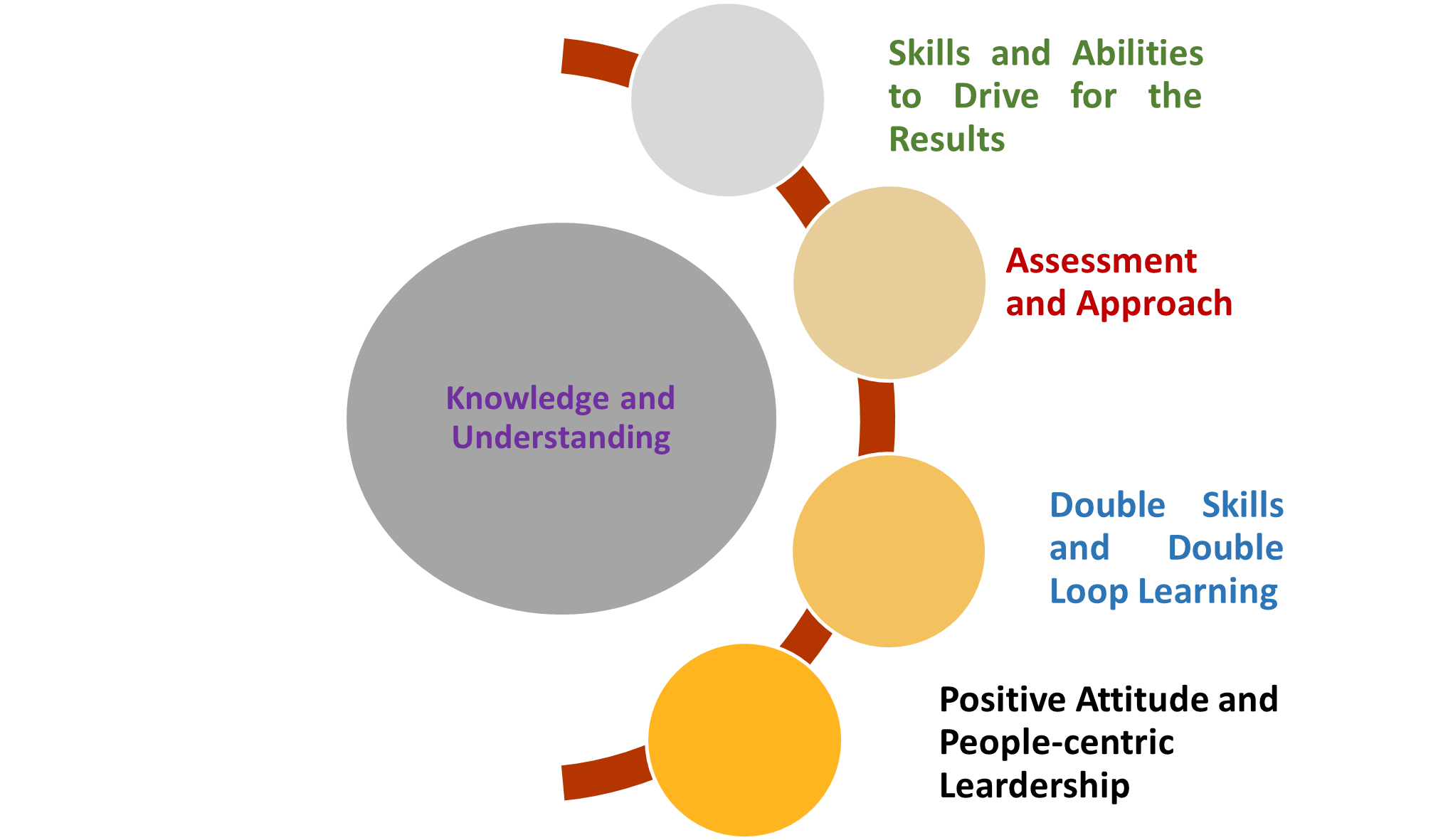 Training Unit seeks to deliver training in such a way that participants can learn at least two things together. For example, while they are learning the tasks of an auditor, they are also learning time management skills for accomplishing those tasks. On the other hand, the training sessions are conducted with particular focus on the double loop learning. Single-loop learning is about making adjustments to correct a mistake or a problem. Double Loop Learning, as an educational concept and process, involves identifying and understanding causality and then taking actiona to fix the problem.
Training Unit seeks to deliver training in such a way that participants can learn at least two things together. For example, while they are learning the tasks of an auditor, they are also learning time management skills for accomplishing those tasks. On the other hand, the training sessions are conducted with particular focus on the double loop learning. Single-loop learning is about making adjustments to correct a mistake or a problem. Double Loop Learning, as an educational concept and process, involves identifying and understanding causality and then taking actiona to fix the problem.
Positive Attitude and People-Centric Leadership: Training participants will be able to: serve as a role model that other people want to follow; empower others to translate vision into results; be proactive in developing strategies to accomplish objectives; establish and maintain relationships with a broad range of people to understand needs and gain support; anticipate and resolve conflicts by pursuing mutually agreeable solutions; drive for change and improvement; accept the status quo; show the courage to take unpopular stands; provide leadership and take responsibility for incorporating gender perspectives and ensuring the equal participation of women and men in all areas of work.
Definite Characteristics
In order to maximize the desired results from the training courses, the PKSF Training Unit upholds the following training specific characteristics.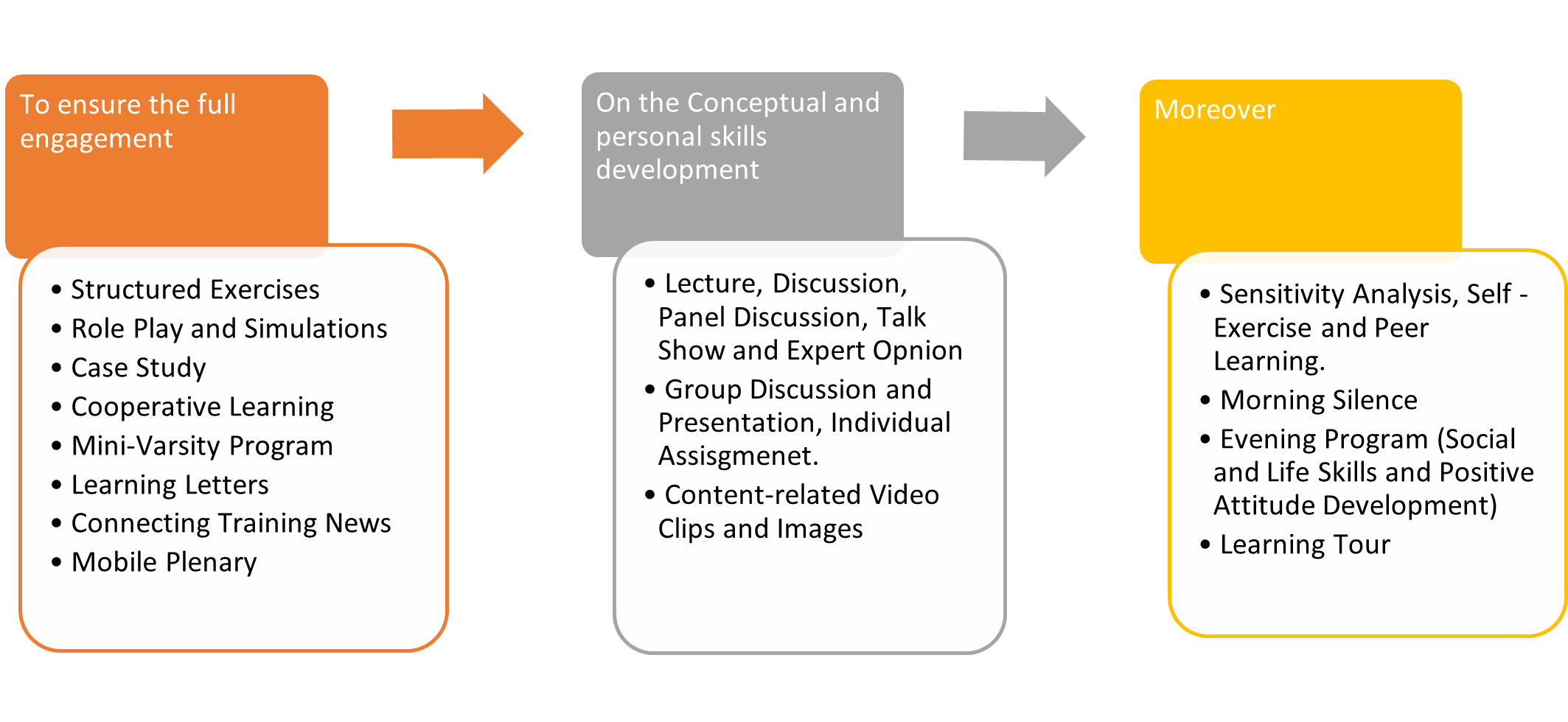
- Trainers strive to create and maintain a learning environment of openness, friendliness, mutual trust, and respect
- Trainers consider themselves not as pedagogues but simply as facilitators in the learning process
- PKSF values homogeneity with respect to age, education and experience in selecting trainees
Training Methodology
PKSF Training Unit has applied diverse methodologies for the training program to make every session cooperative, progressive, enthusiastic, and meaningful.Training Status (Cumulative)
| Sl No. | Nature of Training | Reporting Period | No. of Participant |
| 1 | Training for POs (Classroom-based) | July 2001 – Dec 2021 | 61870 |
| 2 | Training for POs (Online) | July 2020 – Dec 2021 | 1645 |
| 3 | Training for National Organizations | July 2012 – Dec 2021 | 454 |
| 4 | Training for International Organizations | July 1998 – Dec 2021 | 514 |
| 5 | Internship Program | July 2002 – Dec 2021 | 639 |
| Total | 65,122 |
Training for the POs (Classroom-based)
The Training Unit designs, develops and conducts demand-driven training courses for the officials of its POs. These courses are conducted by a group of professional resource persons who have considerable expertise over a period of 05–15 years in conducting need-based training in appropriate finance, micro-enterprise financial analysis, risk management, procurement and inventory management, VAT & Tax, human resource management, Training of Trainers (ToT), and other issues.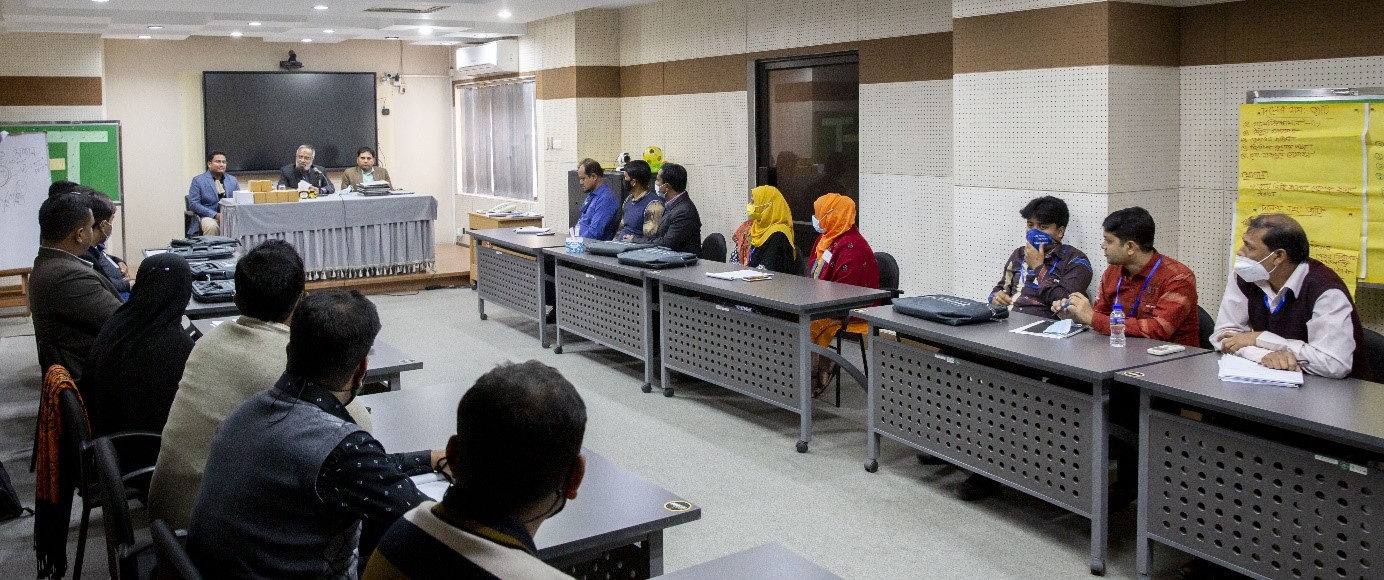
| Sl No. | Name of Training Module | Duration (days) | Suitable for |
| 1 | Risk Management | 5 | Branch/Area/Regional Managers |
| 2 | Procurement and Inventory Management | 5 | Senior/Mid-level Accountants and Internal Auditors |
| 3 | VAT and Tax | 5 | Senior/Mid-level Accountants and Internal Auditors |
| 4 | Human Resource Management | 5 | HR staff of POs |
| 5 | Ratio Analysis and Decision Making | 5 | Senior/Mid-level Officials |
| 6 | Internal Audit for NGOs and MFIs | 5 | Senior/Mid-level Accountants and Internal Auditors |
| 7 | Accounting for Non Accountants | 5 | Non Professional Accountants |
| 8 | Software-based Loan Monitoring and Supervision | 5 | Branch/Area/Regional Managers |
| 9 | Accounts & Financial Management | 5 | Branch Accountants |
| 10 | Basic Training of Trainer (ToT) | 5 | Training related personnel |
| 11 | Micro Enterprise Operation and Management | 5 | Frontline Staff |
Training for POs (Online)
The outbreak of the COVID-19 pandemic has led to systematic changes in the training implementation process. Online training activities have been introduced in place of conducting classroom-based training. During the COVID-19, the PKSF Training Unit has developed four new online-friendly training courses considering the demand for the POs. A total of 1645 officers from the POs have already received training online in 48 batches.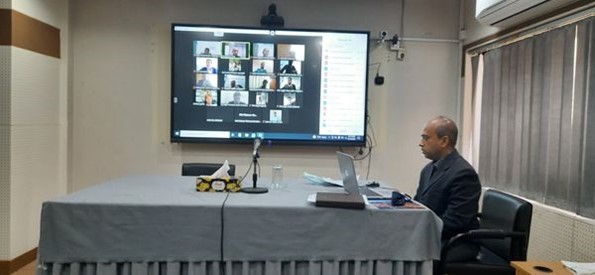
| Sl No. | Name of Online Training Courses | Duration (days) | Suitable for |
| 1 | Loan Management under Covid-19 Situation | 4 | Branch/Area/Regional Managers |
| 2 | Micro-Enterprise Financial Analysis | 4 | Senior/Mid-level Staff |
| 3 | Micro-Enterprise Loan Expansion strategy | 4 | Branch/Area/Regional Managers |
| 4 | Mental Stress Management and Human Communication | 4 | Frontline Staff and Branch/Area Managers |
Cost Sharing from the POs for Training
A portion of the cost is contributed by the respective POs to generate ownership of the training that is offered. The proportion of cost that needs to be shared by the POs is given below:| POs Categories | Share of POs (%) | Subsidy from PKSF (%) |
| Large POs | 80 | 20 |
| Medium POs | 70 | 30 |
| Small POs | 60 | 40 |
Training for National Organizations
In response to the demand, the Training Unit provides various customized trainings and orientations at the national level for government-private personnel and also development organizations that are not POs of PKSF. A total of 454 participants from such national organizations have successfully completed their training or orientation courses at PKSF under the close supervision and guidance of the PKSF Training Unit from July 2012 to December 2021.Training for International Organizations
A number of high-profile delegations from around the world visit PKSF as part of their tour to Bangladesh to gain experience in poverty alleviation through inclusive financing and development. PKSF arranges required orientation programs for them. During the orientation, a vast range of topics are discussed, including apex mechanisms for development and appropriate financing, graduation programs for the extremely poor, suitable livelihoods for the poor, skill development training, and entrepreneurship development. PKSF also organizes field visits for them. As received from the feedback forms, the delegations who visited PKSF took a keen interest in PKSF’s activities dedicated to alleviating poverty and ensuring human dignity for all. From July 1998 to December 2021, a total of 514 participants from different international organizations have successfully completed their training or orientation courses at PKSF under the close supervision and guidance of the PKSF Training Unit.E-Learning Platform
The Training Unit of PKSF has started to develop some e-learning contents which can be retrieved from anywhere in the world. It can be accessed at: https://www.youtube.com/watch?v=rSEfyocl9dI&list=PLzjkKpp3mMuAW32HfANfEg233mmWSivm_&index=1Internship Program
University graduates, particularly those in their final year of study, can pursue their internships at PKSF. Internship programs at PKSF are usually required as part of a student’s academic degree. As of December 2021, a total of 439 interns from various universities, including Dhaka University, North South University, Bangladesh University of Professionals (BUP), Stamford University Bangladesh, BRAC University, and Bangladesh Agricultural University, have successfully completed their internships at PKSF under the close supervision and guidance of the Unit.PKSF Training Calendar for FY 2021-22
In view of the COVID-19 pandemic, the Training Unit has devised a plan to execute both classroom-based and online training activities. A total of 70 batches are expected to be trained in FY 2021–22 under both arrangements. Annual Plan for Classroom-based Training| Sl No. | Name of training course | Duration (days) | No. of batches |
| 1 | Risk Management | 5 | 4 |
| 2 | Procurement and Inventory Management | 5 | 4 |
| 3 | Human Resource Management Training | 5 | 4 |
| 4 | Basic Training of Trainer (ToT) | 5 | 2 |
| 5 | VAT and Tax | 5 | 4 |
| 6 | Software-based Loan Monitoring and Supervision | 5 | 2 |
| Total | 20 |
| Sl No. | Name of online course | Duration (days) | No. of batches |
| 1 | Mental Stress Management and Human Communication | 4 ( Per day 2.5 hours) | 10 |
| 2 | Micro Enterprise Financial Analysis | 4 ( Per day 2.5 hours) | 20 |
| 3 | Micro Enterprise loan Expansion Strategy | 4 ( Per day 2.5 hours) | 20 |
| Total | 50 |
| Sl No. | Types of Training | No. of batches | No. of Participants |
| 1 | Online | 21 | 503 |
| 2 | Classroom-based | 2 | 42 |
| Total | 23 | 545 | |
